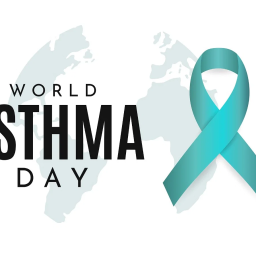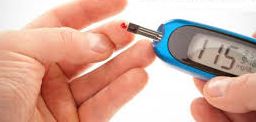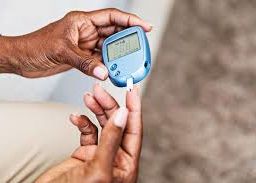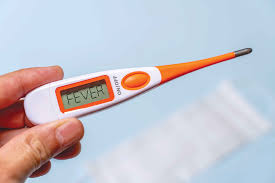
Fever Management Tips: How to Reduce Fever and Stay Comfortable
Navigating through a fever can be CHALLENGING BUT understanding the do’s and don’ts can make all the difference. Discover effective strategies to manage fevers and promote a speedy recovery. From hydration to rest and medication, this guide will help you navigate through the highs and lows of fever with confidence.

Ah, the fiery embrace of a fever! It’s no secret that fevers can make us feel like we’re in the middle of a sweltering summer. That familiar rise in body temperature, has intrigued and concerned humanity for centuries. But did you know that a fever is actually your body’s way of fighting off unwelcome invaders? Fevers are an age-old mystery that has baffled humanity for centuries. When our body temperatures rise, it’s as if a hidden battle is being fought within us. But fear not! Although it is a natural response by our immune system, understanding how to navigate through the highs and lows of fever can be quite a challenge. In this captivating post, we will delve into the dos and don’ts of managing fevers, unraveling the secrets that can help you conquer this common ailment and accelerate your road to recovery. So, grab a cool drink and join us as we explore the fascinating world of fevers!
The Do’s for Fever:
Do Embrace the Heat:
Believe it or not, fevers serve a purpose. They’re a sign that your body’s immune system is in high gear, battling against infections. Rather than viewing a fever as your enemy, embrace it as your body’s defender. By raising your internal temperature, a fever creates an environment that is hostile to bacteria and viruses, inhibiting their growth and replication.
Embrace the Healing Power of Rest:

Do Listen to Your Body: Your body is a fantastic communicator, especially during a fever. Pay attention to the signals it’s sending you. If you feel weak, fatigued, or in pain, it’s a sign that you need rest. Don’t push yourself too hard or engage in strenuous activities. Give your body the time and space it needs to heal. When your body battles a fever, it needs all the energy it can muster. Embrace the healing power of rest and allow yourself ample time to recuperate. Curl up with a good book or indulge in your favorite movies and let your body recharge.
Hydration: The Oasis for Recovery:

Do Hydrate, Hydrate, Hydrate. One of the most crucial dos during a fever is to stay hydrated. Elevated body temperature can lead to increased fluid loss through sweat, which can quickly dehydrate you. Make it a priority to drink plenty of fluids, including water, herbal teas, and electrolyte-rich beverages. Stay away from sugary drinks and caffeinated beverages as they can contribute to dehydration. A fever often leads to increased fluid loss, so hydration becomes paramount. Sip on water, herbal teas, or electrolyte-rich drinks to replenish the fluids your body craves. Stay hydrated to support your immune system and facilitate recovery.
Mind Over Matter: Monitor and Record:
Knowledge is power, especially when it comes to managing a fever. Keep a vigilant eye on your body temperature using a reliable thermometer. Monitor your fever’s progress and record the readings to share with your healthcare professional if necessary. This information will help in determining the severity of your condition and guide further treatment decisions.
Dress for Success:

When it comes to clothing choices during a fever, opt for lightweight and breathable fabrics. Loose-fitting garments allow air circulation, preventing overheating and promoting comfort. Choose clothes that make you feel relaxed and cozy, assisting your body’s natural cooling mechanisms. Avoid the temptation to battle the fever with excessive layers of clothing or blankets. While it might seem counterintuitive, piling on layers can trap heat and elevate your body temperature. Opt for lightweight, breathable clothing instead, allowing your body to cool naturally.
While it may be tempting to bundle up in layers or cover yourself with heavy blankets to “sweat out” the fever, this can actually increase body temperature and hinder the body’s cooling mechanisms. Maintain a comfortable temperature in your environment to prevent overheating.
Nourishment for the Journey:
While your appetite might be diminished during a fever, it’s essential to provide your body with the necessary nutrients for recovery. Opt for light and easily digestible meals such as soups, broths, and nutrient-rich smoothies. Fuel your body with the right foods to support its healing processes.
Do Seek Medical Attention When Necessary:
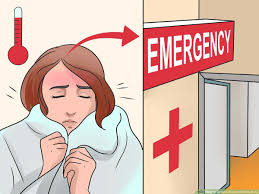
In most cases, fevers resolve on their own as the body successfully fights off the underlying infection. However, if your fever persists for an extended period, is accompanied by severe symptoms, or if you have underlying health conditions, it’s crucial to seek medical advice. A healthcare professional can evaluate your condition, provide a proper diagnosis, and recommend appropriate treatment options. If your fever is accompanied by severe symptoms such as difficulty breathing, chest pain, confusion, or a stiff neck, seek medical attention promptly. These symptoms could indicate a more serious underlying condition.
The Don’ts:
The High Fever Panic:
A soaring body temperature can spark panic, but don’t let fear cloud your judgment. Instead, focus on taking appropriate actions. Seek medical attention promptly if your fever reaches consistently high levels (above 103°F or 39.4°C). Let healthcare professionals guide you through the journey of diagnosis and treatment.
The Dr. Google Conundrum:

In the age of abundant information, it’s tempting to self-diagnose based on internet research alone. However, the online realm can be a minefield of misinformation. Avoid falling into the Dr. Google trap and consult a healthcare professional for an accurate diagnosis and proper treatment. Don’t Overwhelm Yourself with Internet Diagnosis: It’s tempting to turn to the internet for a quick diagnosis but be cautious. Self-diagnosing based on incomplete information can lead to unnecessary worry or incorrect conclusions. Instead, seek professional medical advice to ensure accurate diagnosis and appropriate treatment.
The Chilling Misconception:
Don’t Forget the Power of Cool Comforts: While we don’t recommend cold baths or alcohol rubs for fever reduction, there are other ways to find comfort. Apply a cool washcloth to your forehead, take a lukewarm shower, or use a fan to circulate air in the room. These measures can provide temporary relief and help regulate your body temperature without interfering with the natural course of your fever.

Cold baths and alcohol rubs are often associated with fever management, but the truth is, they can do more harm than good. These practices may induce shivering and cause blood vessels to constrict, potentially raising the body’s core temperature. Stick to fever-reducing medications recommended by healthcare professionals instead, such as: lukewarm water for bathing or use cool, damp cloths on the forehead and neck for comfort.
The Temptation to Overexert:
A fever puts your body in recovery mode, and overexertion can hinder the healing process. Avoid strenuous physical activities that increase your body temperature and strain your immune system. Take it easy, prioritize rest, and allow your body to heal at its own pace. Your body is fighting hard to combat the underlying cause of the fever. Avoid pushing yourself too hard or engaging in physically demanding activities. Rest allows your immune system to focus on healing, expediting your recovery process.
The Sole Reliance on Medication:
While fever-reducing medications can provide temporary relief, they don’t address the underlying cause of the fever. If your fever persists or worsens despite medication, it’s essential to consult a healthcare professional for further evaluation. They can identify the root cause and recommend appropriate treatment options.
Don’t rely solely on natural remedies:
While some natural remedies may provide relief, they are not a substitute for medical treatment. If your fever persists or worsens, consult a healthcare professional for proper diagnosis and treatment options.

Don’t Overload on Medication:
While over-the-counter fever-reducing medications can provide relief, it’s important not to rely solely on them. Remember that a fever is your body’s natural response to an infection and suppressing it too quickly may interfere with your body’s healing process. Reserve medication use for severe discomfort or when advised by a healthcare professional.
Don’t Hesitate to Seek Support:
During a fever, it’s okay to ask for help. Reach out to your support system, whether it’s family, friends, or neighbors, for assistance with daily chores, childcare, or meal preparation. By alleviating the additional stressors, you can focus on your recovery.

Don’t Neglect Self-Care:
Fever can take a toll on both your physical and emotional well-being. Engage in self-care activities that promote relaxation and boost your mood. Indulge in a warm bath, read a favorite book, or listen to soothing music. Taking care of yourself holistically can aid in your recovery process. Even during a fever, your body needs vital nutrients to fight off infections. Opt for nutrient-rich foods like fruits, vegetables, whole grains, and lean proteins. These provide essential vitamins and minerals that bolster your immune system.
Don’t forget the importance of hygiene:

During a fever, it’s vital to maintain good hygiene practices to prevent the spread of infections. Wash your hands frequently, cover your mouth when coughing or sneezing, and dispose of tissues properly. By doing so, you protect both yourself and those around you.
Don’t expose others to infection:
If you have a fever caused by an infectious condition, take necessary precautions to prevent spreading it to others. Stay home from work or school, avoid close contact with vulnerable individuals, and follow the guidance of healthcare professionals to reduce the risk of transmission.
Don’t skip critical medication:
If you’re currently taking prescribed medications for a chronic condition, do not discontinue or skip doses without consulting your healthcare provider. They can provide guidance on how to manage your medication regimen during a fever.
Managing a fever effectively requires a combination of self-care and appropriate medical advice. By following the do’s and don’ts outlined in this post, you can promote your recovery and ensure your well-being. Remember to prioritize rest, stay hydrated, and seek medical attention when necessary. Take care of yourself and consult a healthcare professional for personalized advice tailored to your specific circumstances.
Disclaimer: The information provided in this content is for general informational purposes only. It is not intended as medical or healthcare advice, diagnosis, or treatment. Always seek the advice of a qualified healthcare professional with any questions you may have regarding a medical condition or healthcare decisions.











